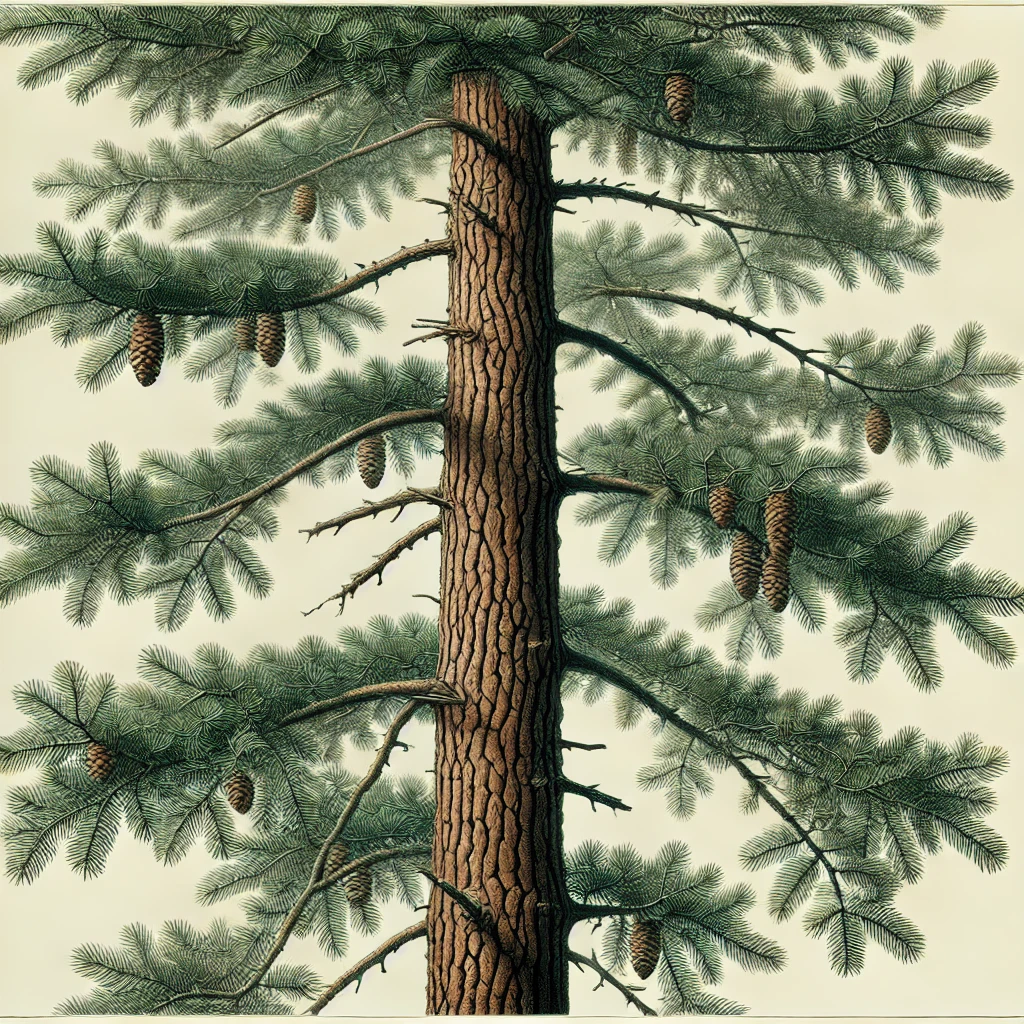Bastard Cedar (Guazuma ulmifolia): A Traditional Herb for Respiratory, Digestive, and Skin Health

Overview
Bastard Cedar, also known as Guazuma ulmifolia, is a versatile medicinal plant widely used in traditional medicine throughout Central and South America. Its leaves, bark, and seeds have applications for respiratory, digestive, and skin conditions. Known for its antimicrobial, astringent, and depurative properties, Bastard Cedar helps to cleanse the body and manage infections. With bronchodilator and CNS-stimulant effects, it also supports respiratory health and may improve alertness.
Medicinal Activity
Bastard Cedar provides a range of therapeutic effects, including:
Antibacterial and Antiviral: Fights various pathogens, supporting immune defense.
Antiseptic and Astringent: Useful for wound care, reducing bleeding and cleansing.
Bronchodilator: Expands the airways, aiding in respiratory conditions like asthma.
CNS-Stimulant: Contains caffeine, potentially enhancing alertness and energy.
Depurative: Cleanses the body, aiding in detoxification and supporting skin health.
Diuretic: Promotes urination, reducing water retention.
Emollient: Soothes and softens the skin, beneficial for skin conditions and irritation.
Antibacterial and Antiviral: Fights various pathogens, supporting immune defense.
Antiseptic and Astringent: Useful for wound care, reducing bleeding and cleansing.
Bronchodilator: Expands the airways, aiding in respiratory conditions like asthma.
CNS-Stimulant: Contains caffeine, potentially enhancing alertness and energy.
Depurative: Cleanses the body, aiding in detoxification and supporting skin health.
Diuretic: Promotes urination, reducing water retention.
Emollient: Soothes and softens the skin, beneficial for skin conditions and irritation.
Therapeutic Indication
Bastard Cedar is traditionally used for various health issues, including:
Respiratory Conditions: Helpful for asthma, bronchitis, coughs, and other lung ailments.
Digestive Health: Alleviates diarrhea, dysentery, and supports liver function.
Skin and Wound Care: Applied for rashes, sores, and other skin conditions, providing antiseptic and soothing effects.
Infections: Used to treat infections like gonorrhea, herpes, and syphilis due to its antibacterial and antiviral properties.
Fever and Cold Relief: Traditionally used to reduce fever and ease symptoms of colds and flu.
Respiratory Conditions: Helpful for asthma, bronchitis, coughs, and other lung ailments.
Digestive Health: Alleviates diarrhea, dysentery, and supports liver function.
Skin and Wound Care: Applied for rashes, sores, and other skin conditions, providing antiseptic and soothing effects.
Infections: Used to treat infections like gonorrhea, herpes, and syphilis due to its antibacterial and antiviral properties.
Fever and Cold Relief: Traditionally used to reduce fever and ease symptoms of colds and flu.
Prepration & Usage
Bastard Cedar can be used in various forms:
Tea/Infusion:
Dosage: 1–2 tsp of dried leaves per cup of hot water. Steep for 10–15 minutes, consumed 1–2 times daily for respiratory and digestive support.
Topical Application:
Preparation: Paste or poultice from leaves applied to the skin for rashes, wounds, and insect bites.
Decoction:
Ingredients: Bark or leaves simmered in water for external application to wounds or for internal use as a digestive aid.
Tea/Infusion:
Dosage: 1–2 tsp of dried leaves per cup of hot water. Steep for 10–15 minutes, consumed 1–2 times daily for respiratory and digestive support.
Topical Application:
Preparation: Paste or poultice from leaves applied to the skin for rashes, wounds, and insect bites.
Decoction:
Ingredients: Bark or leaves simmered in water for external application to wounds or for internal use as a digestive aid.
Safety & Considerations
While Bastard Cedar is generally well-tolerated, there are a few considerations:
Pregnancy and Childbirth: Known to have uterotonic effects, so caution is advised during pregnancy.
Caffeine Content: Contains caffeine, which may not be suitable for those sensitive to stimulants.
Extended Use: Not recommended for long-term use due to stimulant properties.
Pregnancy and Childbirth: Known to have uterotonic effects, so caution is advised during pregnancy.
Caffeine Content: Contains caffeine, which may not be suitable for those sensitive to stimulants.
Extended Use: Not recommended for long-term use due to stimulant properties.
Conclusion
Bastard Cedar is a traditional herbal remedy with a broad spectrum of health benefits, particularly for respiratory, digestive, and skin health. Its antimicrobial, bronchodilator, and astringent properties make it a valuable addition to natural medicine. However, due to its caffeine content and uterotonic effects, it should be used with caution and ideally under the guidance of a qualified practitioner.
